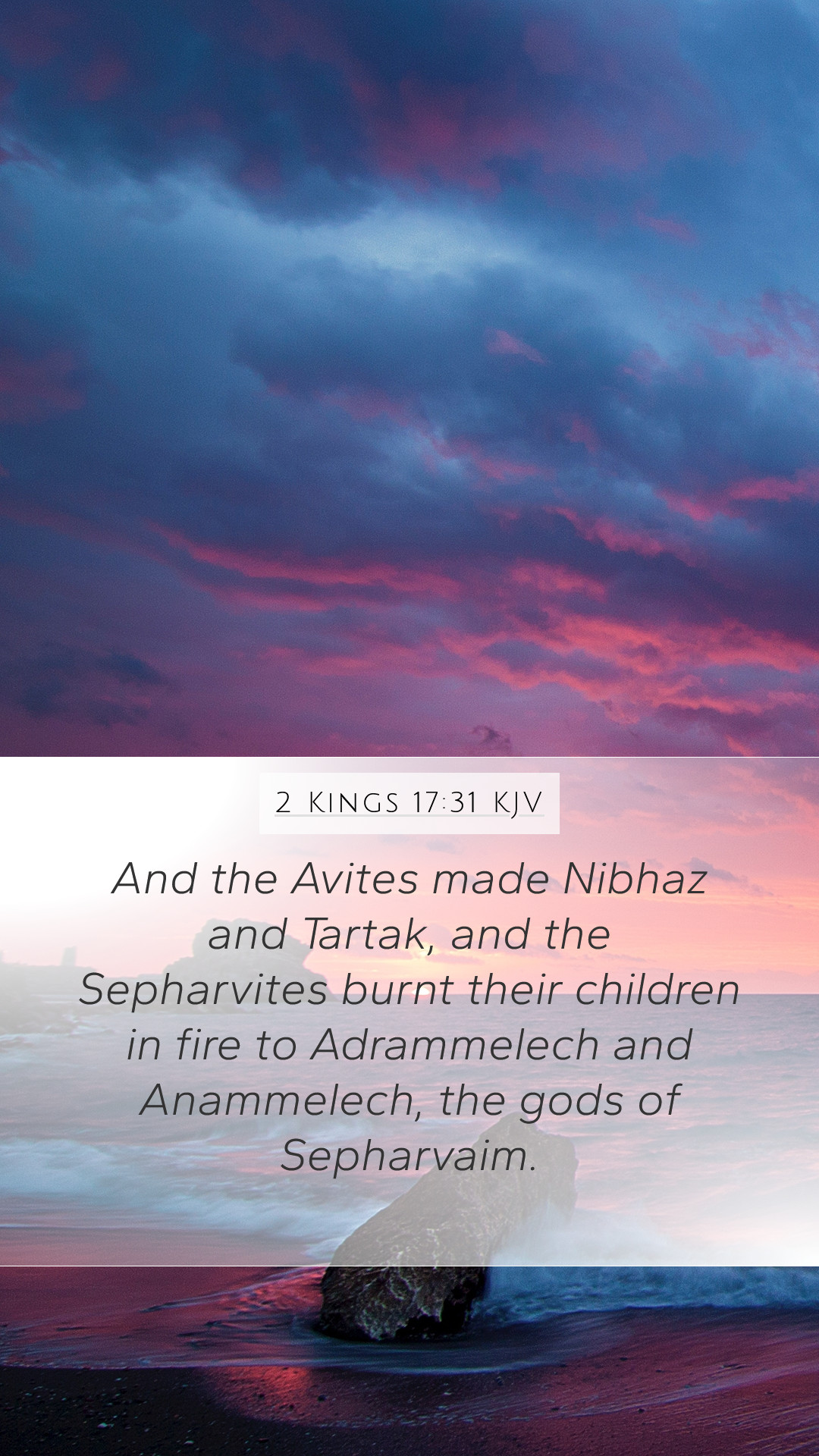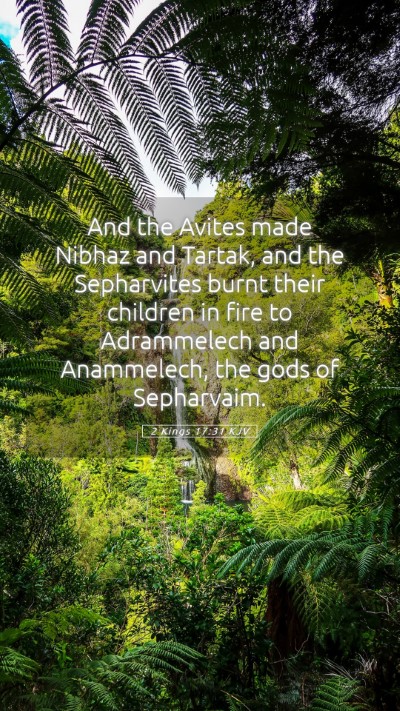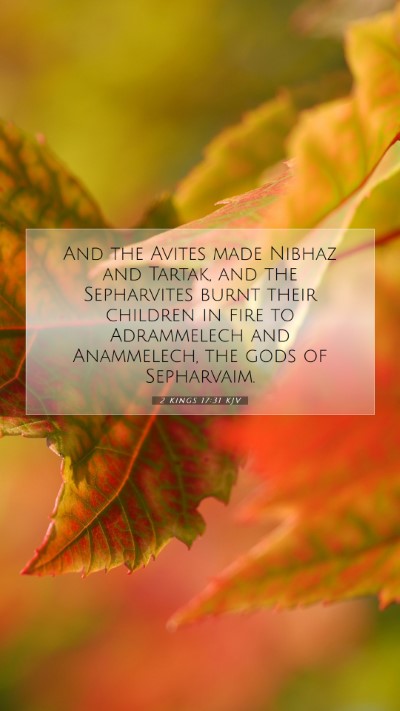Understanding 2 Kings 17:31
In 2 Kings 17:31, we encounter a significant moment in the narrative that reflects the complexities of Idolatry and its impact on the nation of Israel. This biblical verse provides a glimpse into the religious practices of the people and the consequences of diverging from Yahweh's commands.
Verse: "And the Avites made Nibhaz and Tartak, and the Sepharvites burned their children in fire to Adrammelech and Anammelech, the gods of Sepharvaim."
Bible Verse Commentary
Idolatry in Israel
The mention of the Avites and their practices is crucial for understanding how the worship of false gods infiltrated Israel. Matthew Henry emphasizes that the Israelites adopted various heathen customs during times of apostasy, leading to a dilution of their worship standards.
Albert Barnes adds that this highlights the manner of false worship that specifically involved child sacrifice, a practice abominable in the eyes of God. These acts demonstrated a severe departure from the true worship of the Lord.
Historical Context
Adam Clarke points out the historical context of this verse, noting that the Assyrians had taken over the northern kingdom of Israel, introducing the worship of several strange gods. This verse serves as evidence of the migration of customs from surrounding pagan nations into the practices of the Israelites.
Understanding Scripture in this context helps us to see the historical ramifications of these choices on the spiritual state of the nation and their relationship with God.
Spiritual Lessons and Applications
This scripture provides profound insights into the importance of adhering to divine directives and the dangers of mixing idol worship with true worship. Faith communities today can learn from the Israelites' mistakes:
- Importance of Pure Worship: Just as the Israelites faltered by adopting false gods, believers today are warned against syncretism in faith.
- Consequences of Idolatry: The sacrifices made to false gods ultimately led to dire consequences. Reflecting on modern-day 'idols' can provide clarity on what detracts from true worship.
- Call to Reexamine Practices: This verse serves as a call for introspection regarding local customs and practices within our faith communities.
Bible Study Insights
Engaging with 2 Kings 17:31 can enrich Bible study groups and personal devotionals alike. Utilizing tools like commentaries, and study guides can help unpack the meaning of Bible verses, and understanding Scripture in greater detail:
- Online Bible Study: Many platforms offer resources that promote deeper understanding of difficult passages.
- Bible Study Lessons: Incorporating historical context into study lessons can elevate discussions in group settings.
- In-depth Analysis: Seek to connect these narratives with contemporary issues of idolatry and false worship.
Related Bible Verses
This verse connects with several other scriptures which elaborate on the themes of idolatry and divine judgment:
- Deuteronomy 12:31 - Warns against child sacrifice and worshiping God through the practices of surrounding nations.
- Jeremiah 7:31 - Rebukes the Israelites for building high places and burning children in fire.
- Isaiah 57:5 - Discusses the sins of idolatry, including the slaughtering of children.
In conclusion, 2 Kings 17:31 serves as a cautionary tale of the dangers of idolatry and the importance of maintaining true worship in our lives. Through careful study and reflection, we can extract valuable lessons that inform our faith journeys and promote a deeper understanding of Biblical teachings.


